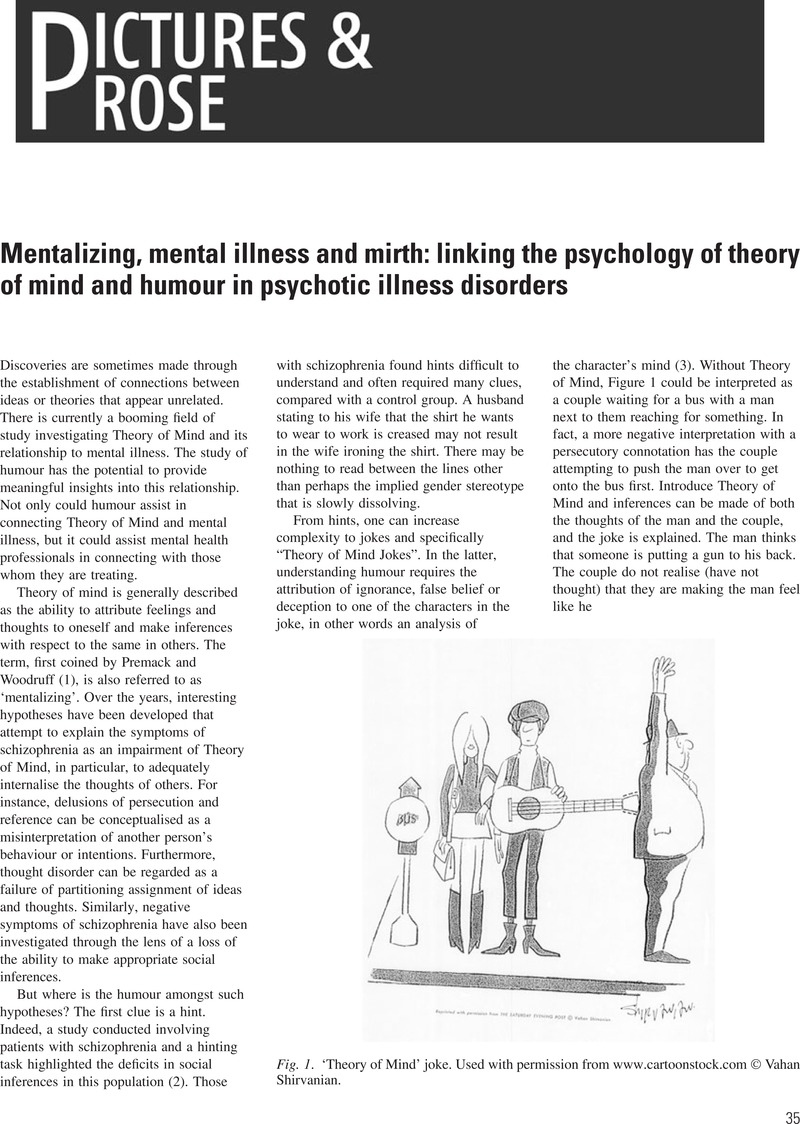Crossref Citations
This article has been cited by the following publications. This list is generated based on data provided by Crossref.
Walsh, Joseph
2015.
The Therapeutic Use of Humor With Clients Who Have Schizophrenia.
Social Work in Mental Health,
Vol. 13,
Issue. 1,
p.
70.
2018.
The Psychology of Humor.
p.
373.



